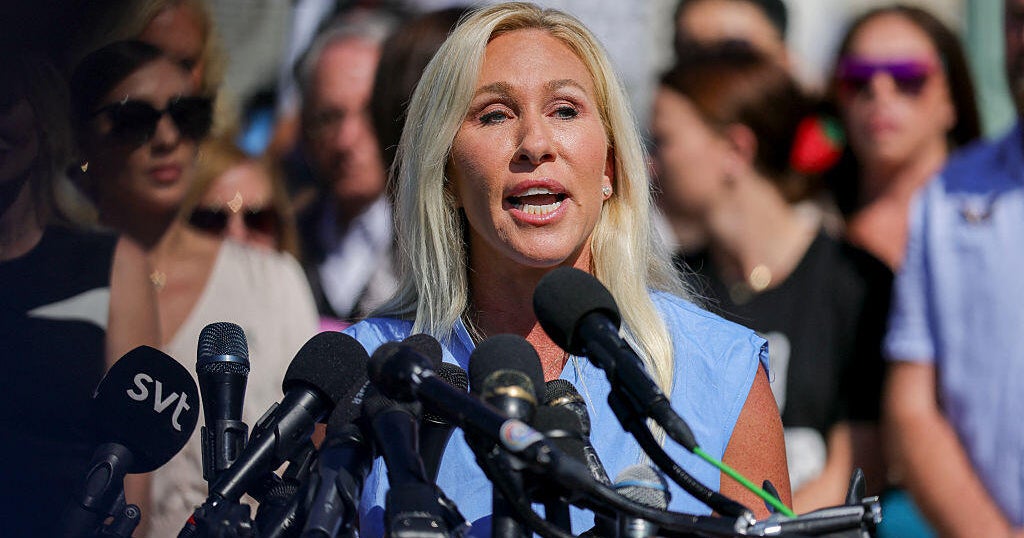In the often-turbulent world of modern politics, certain alignments seem almost sacrosanct, creating an impression of unshakeable solidarity. This makes the recent news surrounding Marjorie Taylor Greene all the more jarring. A figure widely recognized for her steadfast allegiance to Donald Trump and his political movement, Greene has reportedly begun receiving threats following a public disagreement with the former president. It’s a development that peels back a layer on the dynamics of political loyalty and reveals an unsettling truth about the pressures within highly factionalized movements.
When Loyalty Turns Labyrinthine
For years, Marjorie Taylor Greene has been a vocal, often controversial, standard-bearer for a specific brand of conservatism, closely aligned with Donald Trump. Her outspoken support and willingness to champion his causes have made her a prominent, if polarizing, voice. Yet, even within such a seemingly impermeable bond, cracks can appear. The nature of the disagreement itself wasn’t about a fundamental shift in ideology, but rather a perceived deviation from the party line regarding the leadership of the Republican Party.
In certain political ecosystems, loyalty isn’t just preferred; it’s an unwritten, unforgiving law. Supporters, often passionately invested in the figures they champion, can view any internal dissent, no matter how minor, as a profound betrayal. This creates a challenging environment where nuanced opinions are often stifled by the overwhelming expectation of unwavering fealty. Greene’s situation highlights how even a staunch ally can find themselves in the crosshairs when they step, even slightly, outside the perceived boundaries of absolute devotion.
The Perilous Cracks in the Facade of Unity
The incident involving Marjorie Taylor Greene isn’t just a fleeting headline; it’s a stark, uncomfortable mirror held up to a specific segment of the political landscape. It exposes the perilous cracks forming within a facade of staunch unity, where even the slightest deviation from the perceived party line can be met with vitriol and, alarmingly, physical threats. This isn’t merely political disagreement; it’s a symptom of a deeper, more concerning trend where tribalism overshadows discourse.
The existence of threats against a prominent figure from within her own political camp suggests a chilling escalation in political fervor. It raises questions about the health of internal party dynamics and the very nature of dissent. As one political observer, Dr. Lena Hansen, noted recently, “When the internal pressure to conform becomes so intense that even perceived allies receive threats for minor disagreements, it signals a dangerous escalation in political tribalism. It’s a purity test that devours its own.” This kind of environment can have a chilling effect, discouraging open debate and fostering a culture of fear, even among those who largely agree.
Ultimately, this situation transcends the immediate personalities involved. It offers a disquieting look into the fervent, sometimes uncompromising, heart of modern political loyalty and the dangerous territory it can lead to. When disagreement among allies triggers threats, it forces us to confront not just the individual incidents, but the health and future of our collective political discourse. It serves as a stark reminder that the very movements built on challenging external norms can, paradoxically, become the most unforgiving internally.




